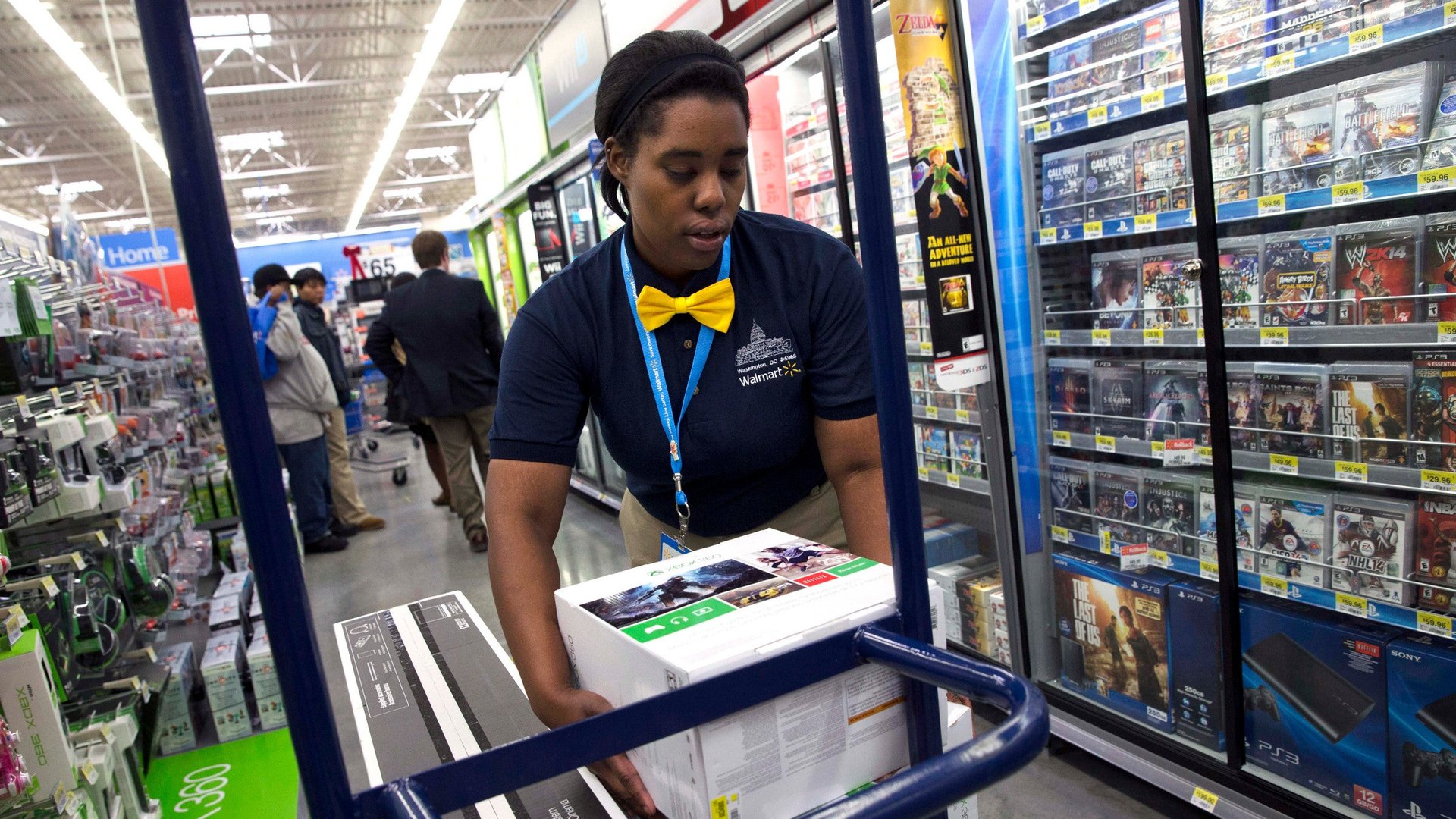Why Wal-Mart should support a higher minimum wage
Math.


Math.
Bloomberg reported yesterday that Wal-Mart is considering putting its political muscle behind President Obama’s push to raise the minimum wage to $10.10 an hour. Wal-Mart quickly denied that such a tack was under consideration—for now, it is staying on the sidelines, though it funds organizations lobbying against the proposal. But you can see why they would be considering it: It could add to their bottom line.
Wal-Mart’s problem is that the recession has squeezed its low-income customers, reducing their disposable income and shrinking Wal-Mart’s sales. The company has publicly complained about the end of a temporary payroll tax cut, and about cuts to food subsidies that are often spent in its aisles. A government report this week forecast that Obama’s minimum wage proposal could lift the incomes of some 16.5 million low wage workers, many of whom are likely Wal-Mart customers.
On the other side of the ledger, the proposal would increase payments to Wal-Mart employees. Only 4,000 of the chain’s current employees make minimum wage, said a spokesman, but it’s likely that more workers at the company make less than $10.10 an hour. In addition, minimum wage increases ripple up the corporate pay ladder, as supervisors ask for higher wages, too.
But would the impact of growing sales outweigh the cost of the salary increases? It’s certainly plausible.
And there are other benefits to higher wages: The clothing retailer GAP has just announced it will raise its minimum wage to $10 by 2015, a move that will affect some 65,000 employees. While GAP’s various brands aren’t known for catering to a low-income customer base, the company’s executives hope the move will improve hiring and retention, while increasing productivity. It’s also a good public relations move to get ahead of a contentious issue that has already led to embarrassing protests targeting low-wage employers such as McDonalds—and Wal-Mart.